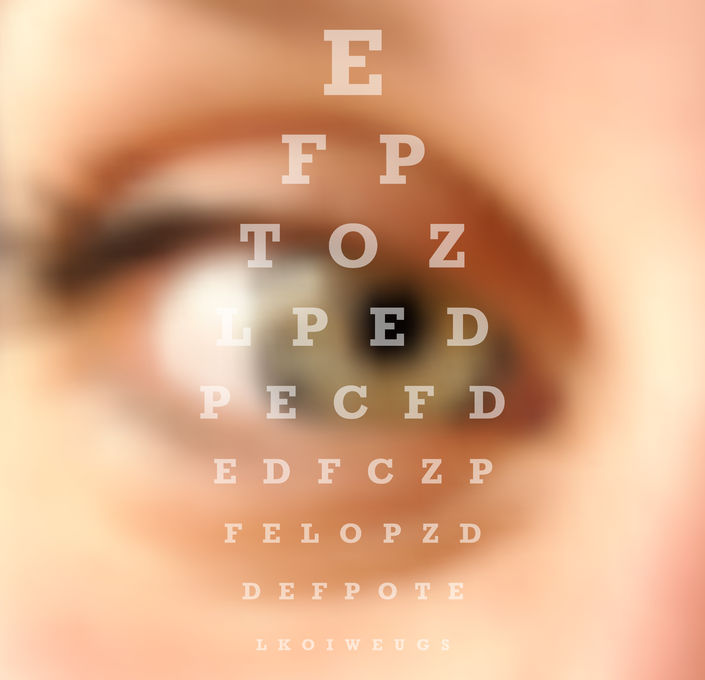Eggs have gotten a bad reputation over the years as an artery-clogging food that should be avoided at all costs… but they can actually provide major health benefits.
Like just about any other kind of food, if you eat too many egg yolks you could have problems. But as long as you enjoy your eggs in moderation, they can help you in ways you might not have imagined possible. Here are just a few of the reasons why you should try to make eggs a part of your dietary regimen:
1. Eggs Are Rich in Quality Protein
 Proteins are the body’s “building blocks.” We need them in order to ensure that our tissues develop correctly. And an egg is packed with protein – just one egg contains a whopping 6 grams. When you make sure that you have enough protein in your body, that can help you in many ways. Protein can help you:
Proteins are the body’s “building blocks.” We need them in order to ensure that our tissues develop correctly. And an egg is packed with protein – just one egg contains a whopping 6 grams. When you make sure that you have enough protein in your body, that can help you in many ways. Protein can help you:
- Keep your bones strong
- Increase your muscle mass
- Lower your blood pressure
- Reach your weight loss goals1
2. Eggs Rich in Omega-3 Fatty Acids Can Lower Triglyceride Levels
When you shop for eggs, look for brands that contain Omega-3 fatty acids.
Not all eggs are the same — ones that come from hens that received feed enriched with Omega-3 will contain more Omega-3 acids.
This is important because Omega-3 lowers triglyceride levels in the blood, which in turn helps lower the risk of heart disease. In one study, participants who ate five eggs rich in Omega-3 each week for three weeks saw their triglyceride levels drop by as much as 18 percent.2
3. Eggs Increase Levels of “Good” Cholesterol
While it’s true that eggs, particularly the egg yolk, are high in cholesterol, that doesn’t necessarily mean that it will raise the level of cholesterol in the blood.3
You see, different people respond in different ways when it comes to how their bodies respond to the cholesterol in eggs.4 And while they can raise “bad,” or low-density lipoprotein (LDL) cholesterol in some people, the majority of people don’t see increased LDL levels in the blood. However, eggs can increase the levels of high-density lipoprotein (HDL) or “good” cholesterol.
One study showed that eating two eggs a day for a month and a half resulted in an increase of HDL in participants.5 Increased HDL levels can lower the risk of many types of health problems — including stroke and significant heart health issues.
4. Eggs Are Rich in Choline
You might not have heard of choline, and if that’s the case… you’re not alone. However, this is a very important nutrient — and eggs are chock full of them.
Choline helps form cell membranes and also plays a role in forming the molecules that transmit signals within the brain. Even though just one egg has more than 100 mg of choline, studies indicate that the vast majority of people in the U.S. — as much as 90 percent — don’t get enough in their diet.6
5. Eggs Can Help Your Vision
 An egg yolk contains important antioxidants that can keep your eyes healthy. Two antioxidants in particular that are found in eggs: zeaxanthin and lutein. These antioxidants can substantially reduce the chances of developing common eye problems such as macular degeneration and cataracts.7
An egg yolk contains important antioxidants that can keep your eyes healthy. Two antioxidants in particular that are found in eggs: zeaxanthin and lutein. These antioxidants can substantially reduce the chances of developing common eye problems such as macular degeneration and cataracts.7
In fact, a recent study showed that people who eat slightly more than one egg yolk each day for a little more than a month can increase their levels of lutein by up to 50 percent and their levels of zeaxanthin by as much as 142 percent.8
Nutritional Value
Just one hard-boiled egg delivers a significant amount of vitamins like:
- Vitamin A
- Vitamin B5
- Vitamin B12
- Vitamin B2
- Phosphorus
- Folate
- Selenium9
Now, phosphorus plays a key role in the growth and repair of tissues and cells, while folate — also known as folic acid — helps in the formation of red blood cells. And selenium is important because it helps the immune system function properly.10
6. Eggs Don’t Harm Your Heart and Could Reduce Your Stroke Risk
One of the misconceptions a lot of people have about eggs is that they have to be bad for your heart because they have a lot of cholesterol. It’s just not true. Recent studies are showing otherwise.
In fact, researchers reviewed nearly 20 studies that had more than 260,000 participants and could not find any link between eating eggs and suffering a stroke or heart disease.11
7. Eating Eggs Could Help You Manage Your Weight
 Eggs tend to promote a feeling of “satiety,” or fullness. As a result, you will be less likely to overeat.
Eggs tend to promote a feeling of “satiety,” or fullness. As a result, you will be less likely to overeat.
One study included 30 obese women who ate eggs rather than bagels. According to the results, they reported an increased sense of fullness, which led them to consume fewer calories over the following 36 hours.12
And another study showed that eating eggs for breakfast instead of bagels for two months resulted in the participants losing a substantial amount of weight.13
Other Benefits of Eggs
Whether you like your eggs scrambled, poached, fried or you prefer hard-boiled eggs, you can enjoy several other benefits from making them part of your regular dietary routine. Here are just a few.
Vision benefits – Again, eggs contain specific antioxidants that can help your eyes remain healthy, but they’re also high in vitamin A, which helps protect the membranes that surround the cornea.
Vitamin A also helps ensure your retinas absorb light properly and reduce the risk of suffering night blindness. One egg provides nearly 10 percent of the recommended daily Vitamin A intake. Men should get about 900 micrograms of Vitamin A per day, while women should get around 700 mcg.14
Reducing heart disease risk through good fats – Scrambled, fried and hard-boiled eggs are rich in “good fats,” otherwise known as polyunsaturated and monounsaturated fats. If you can replace the “bad fats” – trans fats and saturated fats – with good ones, you can reduce your risk for heart health issues and keep your cholesterol levels stable.
Good fats can also help keep your blood sugar levels at a safe number, which is incredibly important for people who have type 2 diabetes.
Bone health – Eggs are also rich in vitamin D, which helps ensure that your teeth and bones stay strong. This essential vitamin also helps regulate the levels of calcium in the blood and plays a role in ensuring that our bodies do a good job of absorbing this critical nutrient.
A single egg can provide you with about 7 percent of an adult’s recommended daily intake of vitamin D.16
And Don’t Avoid the Yolk
You might have heard or read that you should only eat egg whites and get rid of the egg yolk. But yolks are packed with unsaturated fat as well as Omega-3, which are very healthy.
They’re also low in saturated fat, so you can feel free to eat them as a part of your overall healthy diet. But yolks also contain a significant amount of riboflavin, which is critical to the production of red blood cells. Riboflavin also helps the body gain energy from the carbohydrates we ingest.
The Takeaway
Of course, you should have a talk with your doctor before you start to introduce more eggs into your diet. As healthy as the whites and yolks may be, you never want to suddenly start eating more of any kind of food before first getting the okay from a medical professional.
Once you do, however, you should soon start noticing substantial benefits. How egg-citing!
More reading:
5 Easy (And Healthy) Ways to Upgrade Any Meal You Make
4 Simple Sleep Better Tips
Sources
1. https://www.hsph.harvard.edu/nutritionsource/what-should-you-eat/protein/
2. https://www.nature.com/articles/1602650.pdf?origin=ppub
3. http://www.sciencedirect.com/science/article/pii/0026049565900028
4. https://www.ncbi.nlm.nih.gov/pubmed/16340654
5. http://jn.nutrition.org/content/138/2/272.long
6. http://www.fasebj.org/cgi/content/meeting_abstract/21/6/LB46-c
7. http://iovs.arvojournals.org/article.aspx?articleid=2125160
8. http://ajcn.nutrition.org/content/70/2/247.short
9. http://nutritiondata.self.com/facts/dairy-and-egg-products/117/2
10. https://www.ncbi.nlm.nih.gov/pubmed/10963212
11. http://www.bmj.com/content/346/bmj.e8539
12. https://www.ncbi.nlm.nih.gov/pubmed/16373948
13. http://www.nature.com/ijo/journal/v32/n10/abs/ijo2008130a.html
14. https://ods.od.nih.gov/factsheets/VitaminA-HealthProfessional/
16. http://nutritiondata.self.com/facts/dairy-and-egg-products/111/2

I think this is one of the most ijportant information for me.
And i aam glad reading your article. But wanna remark on few general things, The web site style is perfect, the articles is realkly great!
I’ve read several just right stuff here. Certainly value
bookmarking for revisiting. I surprise how a lot attempt you
put to make any such magnificent informative web site.
asmr 0mniartist
As the admin of this website is working, no doubt very rapidly it
will be famous, due to its feature contents. 0mniartist asmr
Whoa! This blog looks exactly like my old one!
It’s on a totally different topic but it has pretty much the same page layout and design.
Outstanding choice of colors! 0mniartist asmr
I was extremely pleased to uncover this great
site. I want to to thank you for ones time due to this wonderful read!!
I definitely appreciated every little bit of it and i also have you book marked to check out new information in your web site.
0mniartist asmr
Hello! I understand this is kind of off-topic however I needed to ask.
Does operating a well-established website like yours take
a lot of work? I’m completely new to writing a blog but I do write in my journal daily.
I’d like to start a blog so I can share my experience and views online.
Please let me know if you have any kind of recommendations or
tips for brand new aspiring blog owners. Appreciate it!
asmr 0mniartist